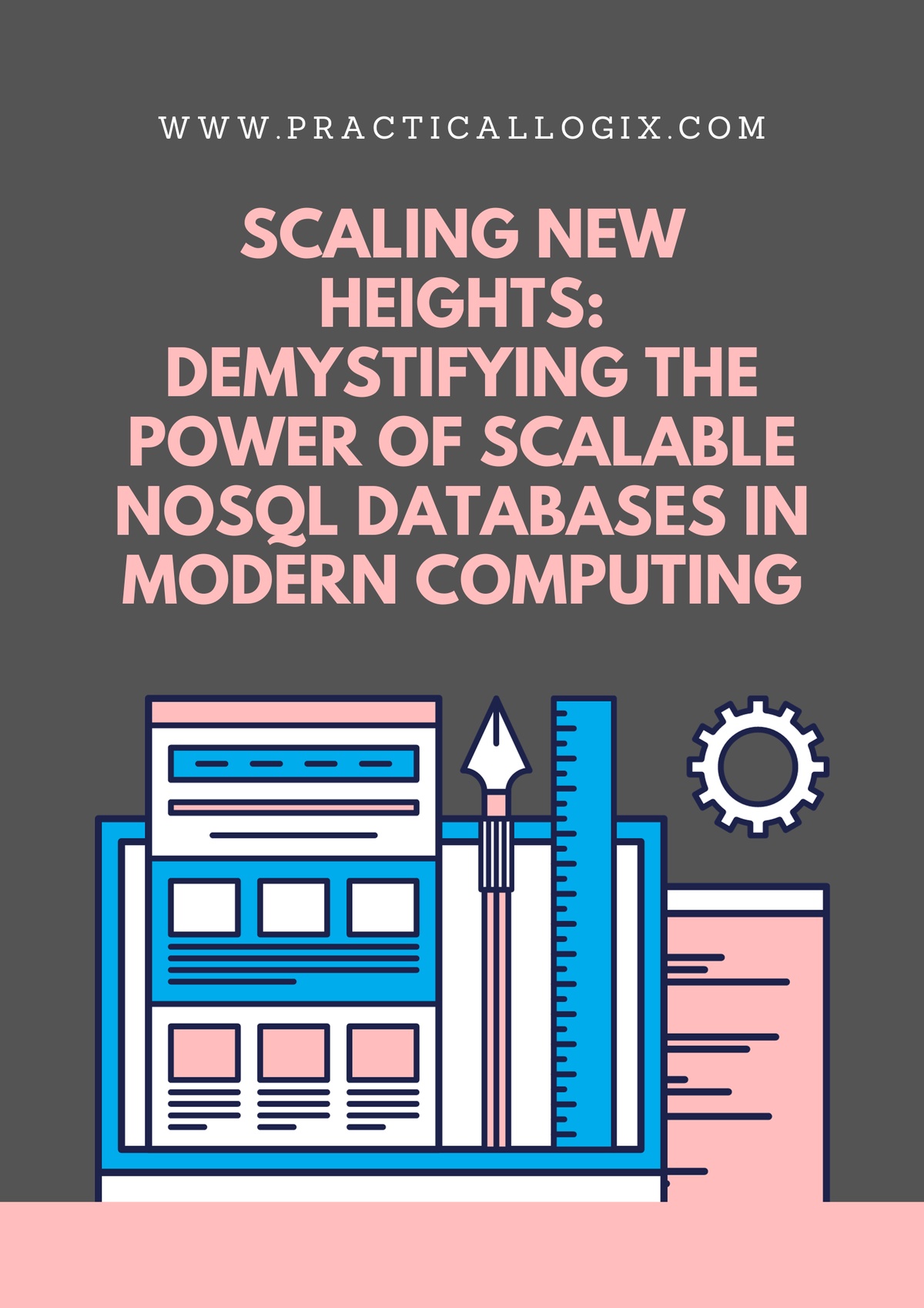In the rapidly evolving landscape of modern computing, the demand for scalable databases has become of utmost importance. While traditional relational databases serve their purpose in specific applications, they often encounter difficulties in handling massive volumes of unstructured or semi-structured data and scaling seamlessly with the growing requirements of dynamic applications. Enter scalable NoSQL databases, a transformative force in the realm of data management. In this blog post, we will elucidate the power of scalable NoSQL databases and explore how they empower businesses to achieve new heights in the era of digital innovation.
Unleashing Scalability in NoSQL Databases:
At the core of the revolution lies the pivotal concept of scalability. Scalable NoSQL databases are purposefully designed to effortlessly expand, catering to the escalating demands of applications, whether in terms of data volume, user concurrency, or transaction throughput. Unlike traditional relational databases that may encounter bottlenecks as data grows, scalable NoSQL databases offer a flexible and horizontally scalable architecture.
Horizontal Scaling for Unprecedented Growth:
The distinguishing feature of scalable NoSQL databases is their ability to scale horizontally. In a horizontal scaling model, rather than augmenting the power of a single machine, databases distribute the workload across multiple servers or nodes. This distributed architecture enables linear scalability, implying that as the workload intensifies, additional nodes can be seamlessly incorporated into the cluster to uphold optimal performance.
Addressing the Challenges of Big Data:
In the era of big data, where organizations grapple with vast datasets generated in real-time, scalable NoSQL databases rise to the challenge. Be it managing massive amounts of user-generated content, sensor data, or clickstream analytics, these databases excel in handling and processing data at scale. This renders them ideal for applications necessitating prompt and efficient access to extensive datasets, such as social media platforms, e-commerce sites, and data-intensive analytics.
Flexibility in Data Modeling:
Scalable NoSQL databases proffer a versatile data model, empowering developers to work with diverse data structures. Whether it's document-oriented databases like MongoDB, key-value stores like Redis, or wide-column stores like Apache Cassandra, these databases can adapt to different data models and structures. This adaptability is crucial for applications dealing with varied and evolving data types.
Enhanced Performance and Low Latency:
Conventional databases often grapple with performance challenges when handling large datasets or high traffic volumes. On the contrary, scalable NoSQL databases are meticulously designed to optimize performance and ensure low-latency access to data. With the capability to distribute data across nodes and execute parallel queries, these databases deliver swift response times, guaranteeing a seamless and responsive user experience.
Supporting Cloud-Native Architecture:
Scalable NoSQL databases seamlessly align with cloud-native architectures, making them a natural fit. As organizations progressively embrace cloud computing, these databases provide the scalability and flexibility required to thrive in cloud environments. Cloud services such as Amazon DynamoDB, Google Cloud Firestore, and Microsoft Azure Cosmos DB exemplify how scalable NoSQL databases seamlessly integrate with cloud platforms, enabling businesses to leverage the benefits of elasticity, scalability, and cost-efficiency.
Future-Proofing for Innovation:
In the fast-paced realm of technology, innovation is an ever-present force. Scalable NoSQL databases equip businesses with a future-proof solution that can adapt alongside evolving requirements. Whether it involves accommodating new data types, supporting emerging technologies like IoT, or handling unforeseen surges in user traffic, these databases empower organizations to remain agile and responsive in the face of technological advancements.
In conclusion, the potency of scalable NoSQL databases resides in their capability to meet the exigencies of contemporary computing by offering unmatched scalability, flexibility, and performance. As businesses ascend to new horizons in the digital realm, embracing these databases becomes a strategic necessity. From addressing big data challenges to supporting cloud-native architectures, scalable NoSQL databases provide a resilient foundation for organizations striving to innovate and flourish in the era of digital transformation.


No comments yet